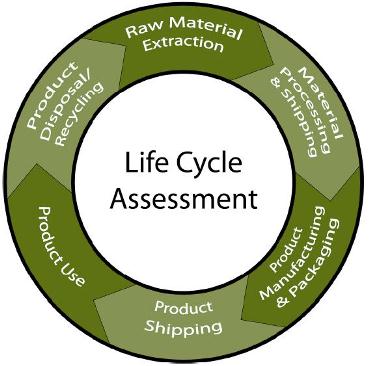

A Primer on Building Environmental Product Declarations


The MIT Concrete Sustainability Hub has published the final piece on the proper use of Environmental Product Declarations (EPD’s) and Life Cycle Assessments.
This is a valuable resource that should be great for use in the Pacific Northwest. This is an easy to read document that outlines the basics of what each tool does.
As noted in the document, there is a significant movement to reduce the environmental impacts associated with buildings, as manifest in the numerous green building rating standards that are available to building developers and owners.
“While the objective of creating “green buildings” is laudable, quantitative evaluations of a building’s environmental impacts must be done using a life cycle assessment (LCA). This method quantifies the impacts of resources and emissions associated with construction and operation of buildings.
It can be challenging to compare the results of building LCAs because of differences in scope and analysis methodologies. This primer is intended to clarify the scope of different LCAs, their purposes, and when they can be used for comparisons.”
As noted in research conducted by the Pacific Northwest Building Resilience Coalition, embodied energy as reflected in EPD’s are only a small part of the carbon footprint of a building.
Recent Posts
Future of Modular Construction Using Concrete and Masonry
These factors collectively position modular construction as a key player in shaping the future landscape…
The Future of Cement as a Sustainable and Resilient Building Product
The future of cement shaping up to forge a more sustainable construction industry that meets…
The Growing Importance of Resiliency in the Design and Construction of Buildings
Resiliency is becoming increasingly important in building design and construction due to the rising frequency…
GCCA Global Low Carbon Ratings for Cement and Concrete
The Global Cement and Concrete Association (GCCA) has developed a standardised low carbon rating system…
Building for Resiliency with Insulated Concrete Forms
Building with Insulated Concrete Forms (ICFs) is increasingly recognized as a critical component of modern…
Building Resiliency in the Pacific Northwest
In the Pacific Northwest, the increasing frequency and severity of climate-related disasters, such as wildfires,…

